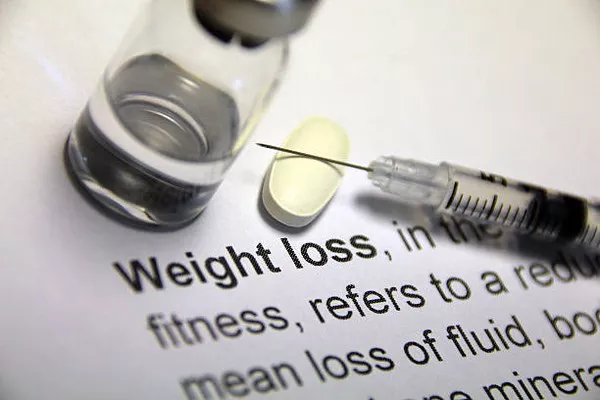In a recent development, health secretary Wes Streeting has announced that weight-loss injections, such as Wegovy, may soon be accessible to unemployed individuals struggling with obesity. This statement follows a significant surge in demand for these treatments, prompting a collective call from hundreds of doctors and health experts for an urgent review of their impact on NHS services.
The Obesity Health Alliance (OHA) has raised concerns that NHS specialist weight management services are ill-equipped to handle the increased demand stemming from an estimated 4.1 million eligible patients for weight-loss medications like Wegovy, also known as semaglutide. As the NHS grapples with these challenges, Streeting’s comments coincide with a government announcement of a £279 million investment in the UK’s life sciences sector, aimed at trialing weight-loss medications and evaluating their potential impact on employment levels among those affected by obesity.
NHS chief executive Amanda Pritchard has praised the potential of weight-loss drugs as “game changers” in tackling obesity; however, she also warned that the influx of new patients could further strain already overburdened obesity services.
A letter signed by over 200 medical professionals was sent to Streeting, cautioning that the introduction of weight-loss injections is exerting “immense pressure” on NHS resources. Dr. Sarah Williams, an NHS specialist, expressed concern over the unprecedented demand: “We’re witnessing an overwhelming influx that our current resources cannot accommodate. The government must take immediate action to ensure obesity services are fair and sustainable. Clinicians are forced to ration essential treatments due to this surge in demand.”
In a newly published report, the OHA has urged the government to conduct a comprehensive assessment of existing NHS obesity services in light of the recent introduction of new weight-loss medications in England. They are also advocating for immediate measures that would allow clinicians to prioritize access to these drugs, preventing a “postcode lottery” in treatment availability.
Barriers faced by patients in accessing these treatments through the NHS have resulted in many seeking alternatives in the private sector. The OHA estimates that funding weight-loss injections for adults with severe obesity in England, along with the necessary weight management services, would require an annual investment of £3.8 billion, potentially escalating to £115 billion by 2030. Conversely, projections suggest that these drugs could ultimately save the NHS £6.5 billion each year.
Furthermore, the OHA is calling for the establishment of tailored weight-loss support services aimed at demographic groups that typically experience limited access, such as older men and individuals from ethnic minority backgrounds.
Despite the 4.1 million people in England eligible for Wegovy, NHS projections indicate that fewer than 50,000 individuals will receive this treatment annually by 2028. Alfie Slade, Government Affairs Lead at the OHA, highlighted the transformative potential of the new weight-loss drugs: “While these medications offer hope to millions struggling with weight management, they also expose critical weaknesses in our current obesity services. Without prompt government action, we risk failing to meet the needs of countless patients, exacerbating health inequalities.”
In response, a spokesperson from the Department of Health and Social Care stated, “Obesity is one of the most significant preventable health risks, costing the NHS over £11 billion each year and placing a substantial burden on the economy. Obesity-related illnesses lead to increased sick days, and weight-loss medications can be a part of the solution. By addressing obesity, we can relieve pressures on the NHS and enhance productivity across Britain. The government is committed to preventing ill health and promoting longer, healthier lives through measures such as limiting junk food advertising and banning high-caffeine energy drinks for children under 16.”
Related Topic:
Will Molina Pay For Weight Loss Surgery


